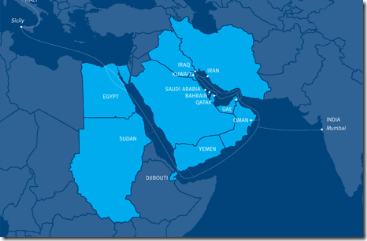The Qtel Group has announced its intentions to launch mobile money services throughout its international operations, covering a regional footprint of 17 countries across the Middle East, North Africa and Asia, and serving a subscriber base of more than 53 million customers.
Qtel’s mobile money proposition includes secure international mobile remittance, mobile payment and mobile recharge facilities. The group hopes to capitalise on the millions of dollars remitted from the Gulf region to Asian countries ever year by expatriate workers.
"There is a significant community of under-banked and unbanked segments in the Middle East, North Africa and Asia, and mobile money services will play an increasingly important role in addressing their needs,” commented group chief executive Nasser Marafih.
“With our presence across this region, and strong connectivity with key remittance markets such as India, Indonesia and the Philippines, we are confident that the Qtel Group can play a key role in delivering mobile money services in a compelling and cost-effective manner,” he added.
Research from leading group Gartner suggests that more than three billion of the world’s adult population will be able to transact electronically via mobile or other Internet-based technology by 2014. India is one of the world’s biggest recipients of remittances, alongside China, with the total value of remittances reaching about US$50 billion by 2008. The total value of remittances to the Philippines was a record-setting US$16.4 billion in the same year.
Other operators already providing or intending to launch m-commerce services in the region include Zain, MTN, Safaricom, Etisalat, Viva and Vodafone.




